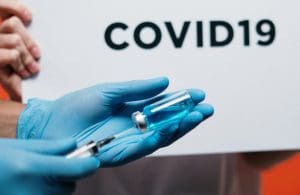
Photo from Pexels
FDA leaders have issued a statement regarding the agency’s plan for authorizing COVID-19 vaccines for children.
The FDA plans to “follow the science” with eyes on COVID-19 vaccines for children younger than 12 as schools begin to get back in session around the country, the agency said in a news release attributed to acting Commissioner Dr. Janet Woodcock and Dr. Peter Marks, director of the FDA’s Center for Biologics Research and Evaluation.
The FDA leaders said they are “eager to see COVID-19 vaccines available for young children,” while safety remains a top priority in allowing for that to happen.
“As regulators, we recognize we have an important task ahead of us that will require us to act expeditiously while undertaking an extremely meticulous and thoughtful review once we receive requests to authorize a COVID-19 vaccine for emergency use or submissions for approval of a COVID-19 vaccine for this population,” the FDA said in the news release. “It’s important that the public recognize that, because young children are still growing and developing, it’s critical that thorough and robust clinical trials of adequate size are completed to evaluate the safety and the immune response to a COVID-19 vaccine in this population.
“Children are not small adults — and issues that may be addressed in pediatric vaccine trials can include whether there is a need for different doses or different strength formulations of vaccines already used for adults.”
In June, Pfizer and BioNTech expanded a COVID-19 vaccine clinical trial involving children under 12 after FDA requested it.
Rare reports of myocarditis in adolescents have prompted the agency to diligently monitor the potential for heart complications and other issues in COVID-19 vaccine vaccine trials involving children.
Another key issue involves children who are taking immunosuppressive drugs, said Dr. Stephen R. Humphrey who is a member of the Society for Pediatric Dermatology. “When it comes to immunosuppressive agents in dermatology, there are several different medications and all portend their own risk. Any immunosuppressive medication choice and subsequent use should be viewed in the light of the risk and benefits, including the severity of the skin disease the medication is being prescribed to treat,” Humphrey said. “In addition to this, the patient’s ability to protect themselves from infection — their exposure risk, geographic location, age, will all play a role in their risk. Continuing safe practices — hand washing, wearing a mask, social distancing, getting the vaccine when available, will decrease your risk of illness.”
In terms of potential COVID-19 vaccines for younger children, the FDA has outlined the steps it plans to take in order to ensure safety and efficacy in vaccines for children as vaccine manufacturers have reported that the necessary clinical trials involving children as participants are currently underway. Those trials are expected to include a follow-up period of at least about two months, allowing for the proper safety monitoring following the administration of vaccine doses for at least half of the clinical trial vaccine recipients.
Once those trials are completed, the FDA will work closely with each manufacturer to ensure that the analysis of the data from the studies is robust and meets regulatory standards, after which the manufacturers will compile the information and potentially request emergency use authorization (EUA) or submit for approval a biologics license application (BLA) to the FDA.
After it receives a completed request for EUA or approval, the FDA will thoroughly and independently examine the data to evaluate benefits and risks, aiming to complete its review in a matter of weeks instead of months.
“Just like every vaccine decision we’ve made during this pandemic, our evaluation of data on the use of COVID-19 vaccines in children will not cut any corners,” the FDA said. “Conducting clinical trials to determine an appropriate vaccine dose in children requires additional work over that done in the adult studies, including ensuring that the vaccine dosage and formulation strength used is the appropriate one from the perspective of safety and generating an immune response. Our multi-disciplinary teams of doctors, scientists, statisticians and other experts will thoroughly assess this complex data in making any determination about COVID-19 vaccines in young children.”
“Just like you, we are eager to see our children and grandchildren vaccinated against COVID-19 as soon as possible,” the FDA concluded.
Filed Under: clinical trials, Drug Discovery, Drug Discovery and Development, Infectious Disease



